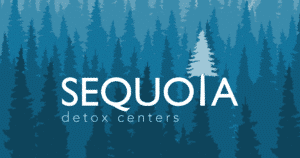Alcohol And Hallucinogens
Alcohol
While alcohol does not cause the same kind of hallucinations as other drugs, it’s still a mind-altering substance. Its action within the brain changes the way certain sensations are perceived and certainly impacts the motor function of the person drinking. Drunkenness impairs reflexes, memory, and more.
Hallucinogens
As indicated by the name, this class of drugs is distinguished by unique action in the brain, action that leads to hallucinations. The nature and intensity of the hallucinations depend on the mindset of the person and the amount of the drug they ingested.
Set And Setting
In the Hallucinogenic community, an important concept is that of “set and setting.” These terms describe the mental perspective (“set”) and the physical location (“setting”) that the hallucinations will interact with. Someone dealing with mental health issues or mood disorders like anxiety and depression might described as having a poor “set” for hallucinogens. Likewise, someone who is content and emotionally stable would have a good “set” for the experience.
Immediate environmental elements also play a key role in determining the enjoyment (or suffering) during a hallucinogenic experience. Something like watching a scary or suspenseful movie, which is stressful when sober, may be magnified in the mind of the person experiencing hallucinations and may therefore be a poor “setting.”
Looking for a place to start?
Join the thousands of people that have called a treatment provider for rehab information.
Free and confidential
Available 24/7
Access to professional treatment
Popular Hallucinogens
LSD – Commonly referred to as “acid”, this man-made Hallucinogen is famous for its integration into blotter papers to be dissolved on the tongue. When ingested, LSD hallucinations can last anywhere from 9 to 12 hours.
Psilocybin – “Magic Mushrooms” contain the chemical Psilocybin. When eaten, they can trigger powerful hallucinations that last 4 to 6+ hours.
Peyote – A small and endangered cactus located in the Southwestern United States and Northern Mexico, Peyote can be dried and chewed or mixed with water and drunk to create a high that lasts around 10 to 12 hours.
DMT – Dimethyltriptamine is a Hallucinogen that can be found in South American plants, which are processed and drunk as Ayahuasca. A DMT high can last from 35 minutes to 4 hours depending on method of ingestion. Drinking Ayahuasca results in a longer experience, but smoking the drug speeds up the process.
Mixing Alcohol And Hallucinogens
In mixing the 2, you’re forcing your body through the effects of both substances. Many people who intentionally mix them do so to amplify or augment the hallucinations they experience with drunkenness. Like many instances of poly drug use, the 2 chemical effects get in each other’s way. The resulting sensation may actually be felt less powerfully than if the user had just taken 1 substance. While the feeling might not be as strong, the body is still processing the substances; forcing more of each substance could get dangerous.
As an accessory substance in this mixture, alcohol can allow for reduced inhibitions and increased likelihood of taking more of the Hallucinogen. Taking larger doses of any drug can seriously increase the physical health risks. With Hallucinogens in particular, the risk of having a “bad trip” or uncomfortable psychoactive experience can balloon as dosage does.
Common Questions About Rehab
Risks And Side Effects
While being drunk and hallucinating may heighten a good trip, it can also intensify a bad trip. If your mindset while drunk is more negative, the resulting hallucinatory experience may be traumatic. While the research surrounding Hallucinogens is still in its early phases, some evidence suggests that bad trips can put people in harm’s way. When asked about their worst experience with Psilocybin mushrooms, over 10% of people in a study confirmed that they or their friends were risking harm.
Both alcohol and Hallucinogens can cause nausea and vomiting when used. The risk is heightened when either are used in large doses, and mixing the 2 also increases the risk of sickness.
Hallucinogenic Research And Alcohol Use Disorder
New scientific study is focusing not on the detrimental effects of Hallucinogens but rather the possible benefits of drugs like LSD and Psilocybin. When the war on drugs began under Nixon in the early 1970s, Hallucinogens were scheduled as dangerous substances with no uses for medical benefit; this made them much harder to study. The little studying people have been able to do about them has turned up interesting results on addiction and mental health.
What opportunities have been had to study these 2 subjects together have resulted in apparent and interesting relationships between the spiritual or mystical experience of Hallucinogens and mental health. In recent data, it was found that these types of experiences acted as mediators for mental health; “trips” can increase overall mental health if the experience is positive. Researchers believe that this effect not only applies to mood disorders like depression and anxiety but also to addiction. High doses of LSD were shown to increase success rates in alcohol use disorder treatment.
Avoiding the Risks of Substance Use Disorder
Both alcohol and Hallucinogens can lead to dependence. Handling a chemical dependence and use disorder on your own can be dangerous, especially alcohol is involved. If you or a loved one needs information or assistance in regards to substance use disorder management, contact a treatment provider today.
Published:
Author
Michael Muldoon

-
Michael Muldoon earned a B.A. in Media Studies from Penn State University, but instead of shifting into an academic career in social science, he has decided to put his skills to work in the pursuit of helping those struggling with addiction. He enjoys spending his free time at the climbing gym with friends.
- More from Michael Muldoon
Reviewed by Certified Addiction Professional:
David Hampton

A survivor of addiction himself, David Hampton is a Certified Professional Recovery Coach (CPRC) and a member of the National Association of Alcohol and Drug Abuse Counselors (NAADAC).
- More from David Hampton
Sources


Recovery Starts Today
Call Now For Addiction Support



Newport Academy – Teen Rehab Center
Port Townsend , WA


Cascade Behavioral Health Hospital
Tukwila , WA

Sequoia Detox Centers
Spokane Valley , WA



Moonlight Mountain Recovery – Nampa
Nampa , ID

Bayside Marin Treatment Center
San Rafael , CA

Newport Institute for Young Adults
Sunol , CA

The Camp Recovery Center
Scotts Valley , CA

Moonlight Mountain Recovery
Pocatello , ID



Tarzana Recovery Center – TRC
Tarzana , CA